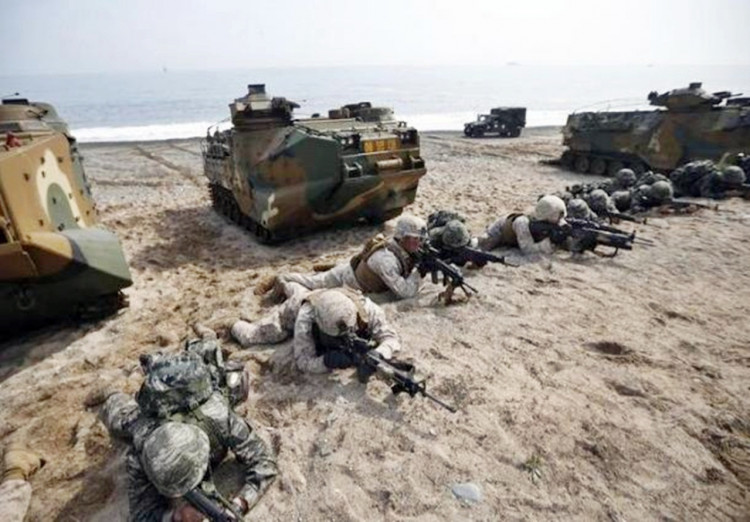A tabloid newspaper owned by the Communist Party of China has reacted to a suggestion in an American military magazine that the U.S. should station soldiers in Taiwan to deter an invasion.
In a tweet, Global Times editor Hu Xijin said if the U.S. returns "forces to Taiwan, the PLA will start a just war to safeguard China's territorial integrity. China's Anti-Secession Law is a tiger with teeth."
Ratified by the 10th National People's Congress in 2005, the Anti-Secession Law formalized China's long-standing policy of using "nonpeaceful means" against the "Taiwan independence movement" should there be a unilateral declaration of independence.
It says the aim of the law is to prevent "Taiwan's secession from China" and promote reunification.
Hu was reacting to an article written by U.S. Marine Corps Capt. Walker D. Mills, and published in the September-October issue of the journal Military Review. It was founded in 1922 and is published by the U.S. Army Combined Arms Center at Fort Leavenworth, Kansas.
In his article Deterring the Dragon, Capt. Mills says the U.S. must consider basing ground forces in Taiwan "if it is committed to defending Taiwanese sovereignty." He said deploying U.S. ground troops was necessary since the regional balance of power in East Asia was shifting away from the U.S. and Taiwan and toward mainland China.
He said the U.S. should reestablish bases in Taiwan to draw a clear line for China. U.S. forces should be based in Taiwan to prevent any attack by China. Deploying U.S. troops will also make it evident the U.S. "will defend Taiwan in the clearest terms."
He said the U.S. should consider basing ground forces in Taiwan to show its commitment to defending Taiwan's sovereignty and shifting the balance of power in East Asia back in favor of the U.S. He suggests U.S. bases would serve as a reminder that an attack would "trigger a wider conflict not acceptable to China."
Capt. Mills said the current balance of power makes a surprise attack on Taiwan "more likely. He believes American leadership has to "face down" international pressure "against a deliberate and more global conflict with China."
"If China forces can prevent U.S. forces from responding reflexively or immediately to People's Liberation Army aggression, the U.S. will either accede to a quick PLA victory in a Taiwanese-mainland China conflict or be forced to wage a long, costly campaign to reestablish access to Taiwan with a far from certain outcome," Capt. Mills said.
He said the 1979 Taiwan Relations Act doesn't explicitly require the U.S. to defend Taiwan in the event of an attack. This ambiguity opens the door for a China attack.
Capt. Mills said if U.S. troops were based in Taiwan, China would have to think twice about attacking the island because it would likely involve a protracted war. If U.S. troops were in Taiwan, any attack on them would rally U.S. support to defend terms."






